Breaking Out of Plato's Cave
A Philosophical Examination of the Key Assumptions That Can Make An Ass Out of Our Creative Endeavors
We have a fantastic film industry because even though I watch an endless number of movies, I still come across a lot of interesting ones that have a way of surprising me. But I often wonder if this is evidence that we’re genuinely maximizing our creative potential or if it’s merely a collective illusion. Are we failing to see an invisible creative sandbox surrounding our industry because its efficiency is so good that it’s masking its limitations? Perhaps we’ve mentally chained ourselves to this assumption that the nature of the industry is just how it is like the sun rising in the East and setting in the West.
I don’t know if this is true, but it’s interesting to speculate, like Plato’s Cave Allegory. If we’re tied to rocks and can only see the shadows, then that’s all we’ll ever know and thus, we’ll only create things within the confines of the cave.
So what kind of underlying assumptions do we carry, today, about storytelling that is keeping us in this cave, if there even is one? I’d like to take a moment and explore some of them because I think by questioning these assumptions, we can begin to think more deeply about how we go about shaping the future of the film industry and our lives, in general.
Assumption #1: Growth Above Everything
Capitalism was birthed after the Crusades when trade routes between the Middle East and Europe formed. Mercantilism, banking, and bazaars to sell goods started popularizing in the West. And now suddenly all those peasant farmers who used to plow the Noble’s fields in exchange for protection, shelter, and food, were selling their stuff to regular people. A new middle and upper class boomed while business monopolies began to sprout, leading to more centralized authority.
The old noble class evolved into the new wealthy corporate elite who pushed for efficiency over value. Now instead of a single shoemaker leveraging their skilled value to make a living, the shoemaker began to leverage their time to do a single part of the assembly line process.
In fact, time, itself, was now being measured as clocks and watches were popularizing, which allowed people to quantify their days. All of this allowed monopolies to scale and make cheaper products. People used to own their own “Cottage” businesses, but those couldn’t scale, let alone compete with bigger companies that could produce way more for cheaper prices.
The city-states eventually merged into entire nations after people started enmeshing themselves with nationalistic beliefs as all of this was more efficient at generating output. If you could coordinate efforts in massive territories based on cultural and political boundaries, then you could scale much higher than places around the World that didn’t form into nation-states. This, of course, was enticing to ambitious politicians and wealthy business owners.
But to support such growth, resources were needed. So they stole them through colonization. Over time this was viewed as inhumane, and with technological advancements, we were able to make these tactics far less brutal...at least overtly. Now instead of conquering, we do asymmetrical economic deals where we screw over smaller counties by making them dependent on us. The armor and sword were replaced by the suit and paper.
None of this is because we’re evil. It’s simply human behavior within a Capitalistic System. Consider this. You’re running a startup, which means it’s your job to produce X value in order to sell to X customers for money. So you’re creating value and selling that value to someone else who, in return, is giving you value in the form of money. And making money? Well, yeah it pays the bills, but it also gives you a dopamine rush, especially when you’re making a lot.
This is the basis of Capitalism, which means its entire foundation inspires us to chase a dopamine fix that increases in demand the more our profits increase. And when competition is factored in, that pushes people even further to grow at all costs. Otherwise, you’ll get crushed by others who are after the same thing.
There are more noble reasons to start a company in addition to this, but many businesses, yesterday and today, use these reasons to inspire their customers to buy into them rather than as primary drivers for their success. This isn’t the case for all companies, of course. There are many great ones doing things they actually believe in and making the World better off because of their actions. But still…We’re seeing way too many commercials reflecting the BP apology campaigns.
Now, given our natural inclinations within a Capitalistic System, what happens, then, when a business reaches a point at which they are no longer growing? Well as you can imagine, they’re compelled to go beyond the ceiling, which can lead to positive and productive practices when first starting out. But when you reach the level of Amazon, it generally leads to bad practices like cornering entire markets, reducing worker quality, buying out politicians to create favorable legislative outcomes, and creating products that break after a few months of use.
This is the World that we live in, today, only unlike yesterday, we share a lot more of the spoils from Capitalism, making many of our lives better by every metric. So technically Capitalism is the most effective economic system, to date. But that doesn’t mean it’s not without its faults. Perhaps the biggest negative externality of Capitalism is that because of its growth nature, it’s led us to become less human and more like laborers giving up our time and skills for money.
The film industry is no exception to this paradigm we seem to be stuck in. There used to be a time when studios mostly took original stories and let the creators, “Have at it”, albeit with stipulations. But now, studios mostly work with existing IP that has a proven track record, and most creators are treated like hired contractors rather than creative artists with discretion.
The human side of filmmaking is eroding. Instead of intuition about a story, we use data. Instead of relying on the creators looking ahead, we rely on the ones looking back. Instead of focusing on telling a great story that can move people, we focus on conveying a story that can get people to purchase a seat or a subscription. It’s why you always hear the advice, “Write a cheap high-concept horror-thriller with an interesting spin on a story that’s been told a million times before because that’s what sells!”.
No doubt, those will sell…But do we really want to see another one? The numbers indeed indicate this, but maybe that’s because we have very few alternatives available to us. And if the studios are too risk-averse and reliant on data about how we respond to existing content rather than data on the content we could, in theory, enjoy, then we’re not really pushing the creative needle.
See, that’s the thing. You can easily collect data on how we respond to things that have been made, but it’s very hard to collect data on how we would respond to things that haven’t been made. This is why studios rely on data from existing content and use that to inform their decisions. But that comes at the expense of uniqueness as the data is always based on the past, not the future. Big studios don’t want to incur the risks that go into finding alternatives, which we may end up loving, and so we end up with too many regurgitations.
So really if you think about it, our preconceived notions about running a business to maximize growth have led us to stop exploring new ways to tell stories, or at least, it has muted this pursuit. Creators trying to break in or stay in the business focus more and more on trying to balance out stories they want to tell versus stories that studios want to sell, which is why so many lean on Adam McKay’s formulaic approach. It’s a formula that has worked and one that is conducive to financial growth.
If it was just about running a good business then we’d see an industry with stories that are as rich and unique as the ones from the 40s. Instead, we’re getting repeat after repeat of existing franchises and “original” movies that actually aren’t all that original.
There are exceptions, of course, like Infinity Pool or The Outfit, but 90 percent seem to be much more motivated by profit than anything else. And yes, I know that streaming took a good chunk out of their profit margins, but it was certainly recoverable and didn’t require leaning so much on tentpole movies to shore up the losses. They leaned on those movies because they wanted to continue exceeding year after year, which they are.
Now writers, filmmakers, and actors are striking because they’re fed up with being underpaid and taken for granted. And with the adoption of AI, many are really beginning to freak out and rightfully so, though to be fair, we’re still a ways off from most creators getting outsourced. Regardless, everyone knows what’s going to happen the day AI is able to allow a studio to trim 90-plus percent of their team down. We’re gonna be shit out of luck!
So perhaps now is the time to really question this externality of Capitalism, that growth is king, because it seems apparent that this mindset plays a significant role in giving us the conditions we find ourselves in, right now. Is growth king and should we allow our creative pursuits to be dictated by it? I suppose an even bigger question is, do we even have a choice given our reliance on businesses that embrace this growth mindset? Or is this reliance just another illusion we tell ourselves?
Assumption #2: Reliance of Studios
Making and marketing a film is expensive and the returns on most movies barely yield above 1%, if they're even lucky enough to make a profit. That’s precisely why most creators work for big studios because to do it yourself or with a small team is extremely difficult. This is the reality we face today. But what about tomorrow?
I talk to a lot of writers and filmmakers and the biggest assumption I hear is that we will always be relying on studios to make and market our work. But will we? I’m not so sure when you factor in the technology we’re developing within the AI and blockchain space.
Billions of dollars are spent on progressing AI. And even though it costs a ton of money to make them, today, we’re pretty much a breakthrough or two away from making them stupidly cheap to the extent that anyone will be able to develop their own GPT right on their home computer and without any need for internet access. This will certainly give regulators a run for their money as nefarious actors will have more power. But it’ll also lead to faster innovation in the space.
Ultimately this will lead to a World where people can text their movies to life and have them look as amazing as the Hollywood movies we see on the big screens, today. You’ll even have auto-generated movies, though I doubt they’ll be better than the human/AI hybrids. This sounds crazy, but when you consider that this is digital innovation as opposed to physical, like building a space station, then it’s safe to assume that progress will be much faster. That’s how it’s always been with digital technology, so there isn’t any reason to assume that AI development won’t be any different. This is especially true given that the code can teach itself.
So what does all of this mean for writers and filmmakers? Are we doomed? Well, first, we have to separate the issue we’re about to face with the issue of AI becoming so advanced that it will be able to beautifully execute the creation of meaningful art all on its own without any instructions. I think we’re certainly on a path toward this eventuality, but there need to be many breakthroughs for that to be the case. So I wouldn’t put my chips on this being an immediate problem, but who knows? I could be wrong.
What we do need to recognize, however, is that from here on out, the marginal cost of producing and marketing Hollywood-quality movies will get cheaper, and I do believe that within this decade it will become affordable for anyone to do. Now, this doesn’t mean that everyone will be able to make a good movie, let alone generate money from them. You’ll still need to be really creative and have a great understanding of writing, directing, and cinematography. But, at least, it won’t cost you your life!
This innovative technology, however, will cost you your job, at least that will be the case for most people. Hollywood has been undermining creators for decades to save their bottom lines, so make no mistake about it. They will trim their workforce as much as humanly possible. This means the cream of the crop will be working for them and everyone else will be kicked to the curb.
But here’s the thing. When we get to this point, creators won’t need Hollywood, anymore. In a World where AI is this advanced, creators with enough drive and talent will be able to leverage AI to make and market their content. The market will respond to this new, “Homeless Class” of talented creators and provide market networks to host their personal channels and leverage various mechanisms of monetization so they can actually earn a decent living. And I’m not talking about the wannabe writers and filmmakers. I’m talking about all the people who used to get work and who are, of course, still talented and driven.
Sounds like a pretty sweet deal until you factor in the issues of a centralized tech company running such a platform. What happens when you have millions of people relying on a site that’s owned by a few people who may not be aligned with the community’s interests? Well, we know what that’s like. It sucks!
They take your data to make their sites more addicting and sell it off to third parties who use it to push whatever agenda their money will buy. They censor content, get rid of popular features, they increase fees that are unreasonable to the average user, but most of all, they use their sites to shape behavior because they always need to figure out how to get their users to do X.
You’ll get all these benefits with AI and more powerful media platforms, but it’ll always come at a cost. So what if we could determine that cost? Well, one day we may be able to by using decentralized autonomous organizations (DAOs). I mention these a lot, but essentially it’s a way for community governance to exist for large organizations, such as a major media platform for creators and fans.
So instead of a big site being owned and operated by a few shareholders, it would be owned by the users who buy into the company and operated by professionals. With this kind of arrangement, the site’s direction would have a better chance of staying true to the customers because if the operators did something unpopular, the users could fight with their money and cash out of the company, which would bankrupt it.
In addition to DAOs, you could also integrate asset tokenization into these market networks, which means creators could tokenize their channels and offer crypto coins that are attached to their value. So users could find ones that show a lot of promise and get in on the ground floor, investing in coins that are fractions of pennies, which could increase in value over time as the channels popularize.
This sounds silly, but let’s not forget what we saw during the Crypto Boom of 2020. Millions of people were investing stupid amounts of money in companies that were offering coins, which were attached to the value of those companies. Unfortunately, most of them were vaporware, so like the dot.com crash, the cards eventually came tumbling down, leaving a sour taste in our mouths. Now when most people hear the word, “Cryptocurrency” they tend to roll their eyes because they’re failing to see past that awful bubble that lost a lot of people’s money.
Yes, there were a lot of shitty companies and even outright pump and dumps, but that’s because the space was so new and unregulated. However, one thing that remains true, to this day, regardless of the bubble is the power of network effects. What do I mean by this? Well, consider how it all went down in 2020. A coin was released to the public by a seemingly reputable company with a solid use case and a lot of promise.
They started marketing themselves and some people bought into it, leading to an increase in the price of the coin, despite its real value. Suddenly the people who invested in it got so excited they started telling their friends and made social media posts about it. Subreddits and other communities surrounding the company formed, and because of this organic marketing in conjunction with the company’s marketing, more people became aware of it and decided to invest.
And as more people invested, the price of the coin rose, exciting more people, which led to more aggressive marketing, much of which was free because the users were shilling it. And that led to more onboarding, which led to further increases in the price of the coin. In other words, it was the mutualistic relationship between the company offering the coin and the people buying the coin, which increased the price and made everyone better off…Until it didn’t because, again, most of them weren’t going anywhere.
But what if instead of vaporware and rug-pull scams, we had legitimate media channels created by independent people where their fans could invest, similar to investing in Ethereum or Dogecoin? The thing about a complicated blockchain company doing something like streamlining global supply chain management is that it’s super hard for the average user to properly measure how successful the company is performing. So these companies can much more easily fool the investors and hide their faults, like when FTX scammed everyone.
But something like a Youtube channel is very easy for people to assess the quality and value. If they’re creating highly unique content that’s getting a lot of attention, upvotes, and comments, and if they seem to be showing up on popular podcasts and hanging out with big-time celebrities, it’s reasonable to suggest that they’re very successful and, thus, a good bet. After all, you can easily hide the failure of a company, but it’s very hard to hide the failure of a Youtube channel because their end deliverables are right in front of you to see (their content).
Granted, there are tons of Youtube channels that fail, even the ones that show a ton of promise. So people will still lose money like they lose money in stocks. But with asset tokenization combined with personal studios run on a decentralized autonomous marketplace we could, in theory, create a digital economy for independent creators and fans to have a chance at thriving doing what they love. And for those who can’t thrive because they’re not talented enough…Well, at least they can have a fair shot at it.
Now here’s where things get crazy. So, we’ll have AI that will reduce the marginal cost of production and marketing, we’ll have DAOs where large companies will be owned by the users and managed by professionals to maintain a fair environment at scale, and we’ll have asset tokenization for independent content channels that fans will be able to invest in, which could make both the fans and the creators better off. Well, there’s one little problem. There’s going to be way too much cheap content for people to steal!
How do we overcome copyright issues, particularly with AI-generated assets that billions of people will be producing every day? Well, we could use auto copywriting technology that could be managed on an immutable blockchain. So basically this would mean that if someone were to take your content or parts of your content and remix them, and if that person were to make money off of your content, you would automatically receive a small dividend from it.
This would be profound because now, instead of monolithic content, you could have a kaleidoscope of remixed content from just one original source, very much like memes. So instead of only seeing sequels you could see variations upon variations of remixed work. Now instead of watching the same story from Fight Club over and over again, you could watch it as a stage play, as a cheesy 90s sitcom, or in whatever other medium, genre, or style you want. And everyone participating and adding value would get paid.
So you see, it’s easy to think that we’ll always need major studios, but if we appreciate the pace of technological growth in these areas, then it becomes obvious that all of this will change for better and for worse. Job stability will be an issue as it will require learning different approaches to leveraging your talent for money. But again, as more artists are thrown out of Hollywood, the market will respond to this and provide alternative ecosystems for them, which will make going indie a lot more manageable for the average person. Why will the market respond like this? Because there’s just too much money for people not to move in this direction.
The technology to do this is here, right now. We just haven’t perfected them enough to maximize their usefulness for creators. This will change, and when it does, I think the indie World will get a radical new makeover. But this raises an important question…Should this technology replace the current way of doing things?
Assumption #3: Technology Replacing the Old is Always the Best Option
The last major assumption I’d like us to consider as we venture into the future is this idea that technology should always replace the old way of doing things…Should it, though? I mean, take social media, for example. The original intent was to make it easier for us to connect with friends and new people, and indeed, to this day it does assist in that regard. But an app that supplements just wasn’t profitable enough so they shifted to something more akin to replacement.
Now instead of just texting your buddies and checking out their vacation photos, you’re connected to a forever scroll of endless addictive content from groups, corporations, and individuals. Now instead of connecting with your friends in the real world, you’re connecting with them in the digital space because it’s easier to keep using Facebook and other gamified apps while “hanging out” with your friends. No wonder so many people are lonelier than ever because we seem to be replacing more and more of our social interactions with online interactions.
Now before we go Ted Kazinksky on the World, let’s keep in mind that the technology, itself, isn’t the problem. It’s how we’re handling it. More specifically, we’re not considering whether the technology we’re creating should replace the old way of doing things or supplement the old way of doing things. For instance, replacing manual screwdrivers with electric screwdrivers is a great replacement because it just streamlines the work that comes with building things. It doesn’t impede us, psychologically.
Replacing social events with Zoom meetups, though, does impede us in this manner because it’s much harder to socialize and have a good time when you’re talking to someone over the screen. That’s why most of us stopped doing that when places opened up after the Pandemic because it sucks compared to the real thing.
But if Zoom had its way, we’d be seeing a lot less real faces in our lives. Even Google, Netflix, and Facebook would love it if you just stayed home and never went out because these tech companies could drastically increase their profits if you’re using their tools to replace life rather than supplement it. And you can’t use these tools to replace your life if you’re busy living it on the outside of the digital space.
So maybe that’s why it feels like we’re being pushed to never go out or talk to strangers in everyday life. Perhaps this is a consequence of major tech companies hiring the best behavioral psychologists money can buy to modify their platforms in a way that shapes our behaviors and how we choose to interact with each other. Or perhaps it’s a combination of many negative externalities that comes with technology and the digital space we spend half our lives in.
Regardless of the reason, this is how things are, today, and it’s hampering our ability to really connect and engage with others. So that brings up a good question. What will happen when these other technologies I mentioned above become integral to our lives? Will AI and these digital market networks replace our ability to connect and collaborate with other storytellers, and if so, will that diminish the power of our creative abilities?
I think that just depends on whether they’re made as tools to streamline and make things easier like the electric screwdriver or if they’re made to make you completely reliant on them to the point where you replace the old way of making films with whatever new way they come up with.
That’s why perfecting DAOs is so essential because it can give people control over platforms that are scaled. Without that control from the users, scaling could prove detrimental as the company owners could choose replacement tactics over supplementation tactics. It’s much better for us to decide what we want to replace and what we want to supplement because if the choice is made for us, then it’ll be whatever makes the company the most money, not what’s best for our own mental health and thus, the stories we create.
Conclusion
You see, all of these assumptions, growth at all costs, reliance on studios, and using technology as a replacement rather than a supplement seem to be having a huge impact on the stories we’re creating, even if it’s indirect and not so obvious. But we feel it, every day, like there’s this air of homogeneity we sense about the Industry that we all feel stuck in. A sense that we’re sticking to a formula rather than a process and art form.
I think we can escape this endless loop and leave the “Cave” to pursue newer and more unique stories, but that requires us, individually, to think more deeply about how we want to approach storytelling.
Should we flock to Hollywood? Should we be writing stories that will make billions of dollars, or should we be writing stories that have a soul and can make a pretty penny? And if we do decide to go the beaten path and make our own content to sell directly to the fans, what parts of that process should be replaced, and what parts should be supplemented with technology?
These aren’t easy questions to answer, but they’re important because the way we’re doing business right now is just not working as well as it could. If we want any chance in hell of making a better future for ourselves, then we need to be considering these questions. Otherwise, we’ll always be stuck in the cave, wondering what could have been instead of realizing what we wanted all along.
Thanks for checking this out, and as always best of luck in your creative endeavors!
Story Prism
___________________________________





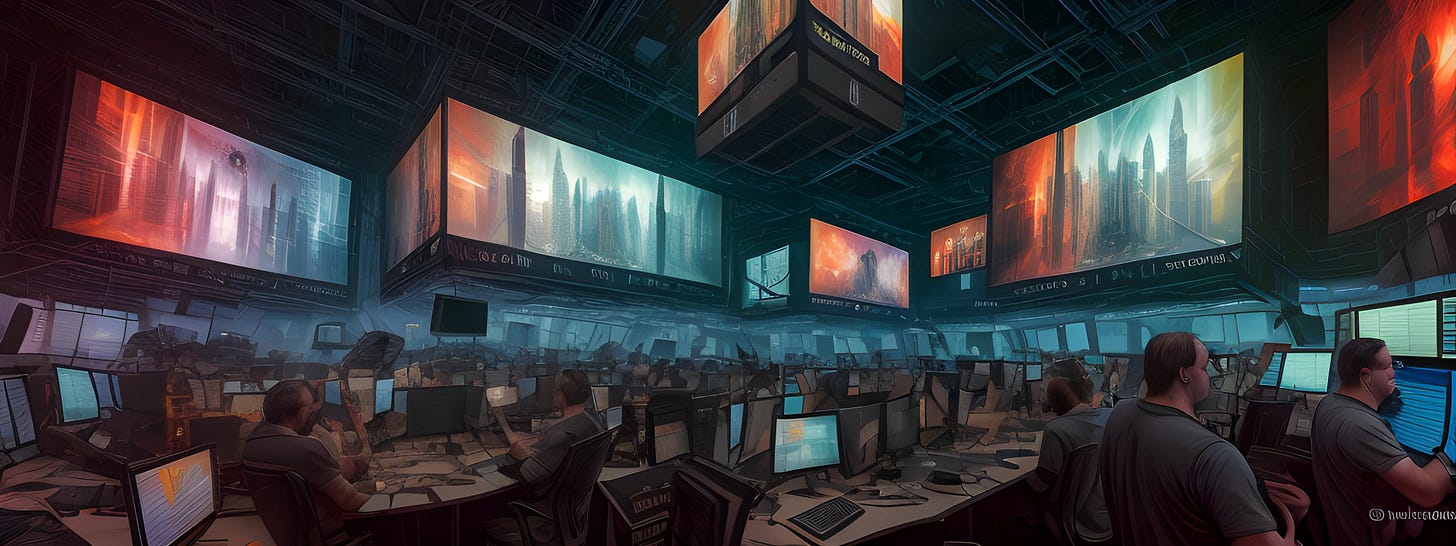

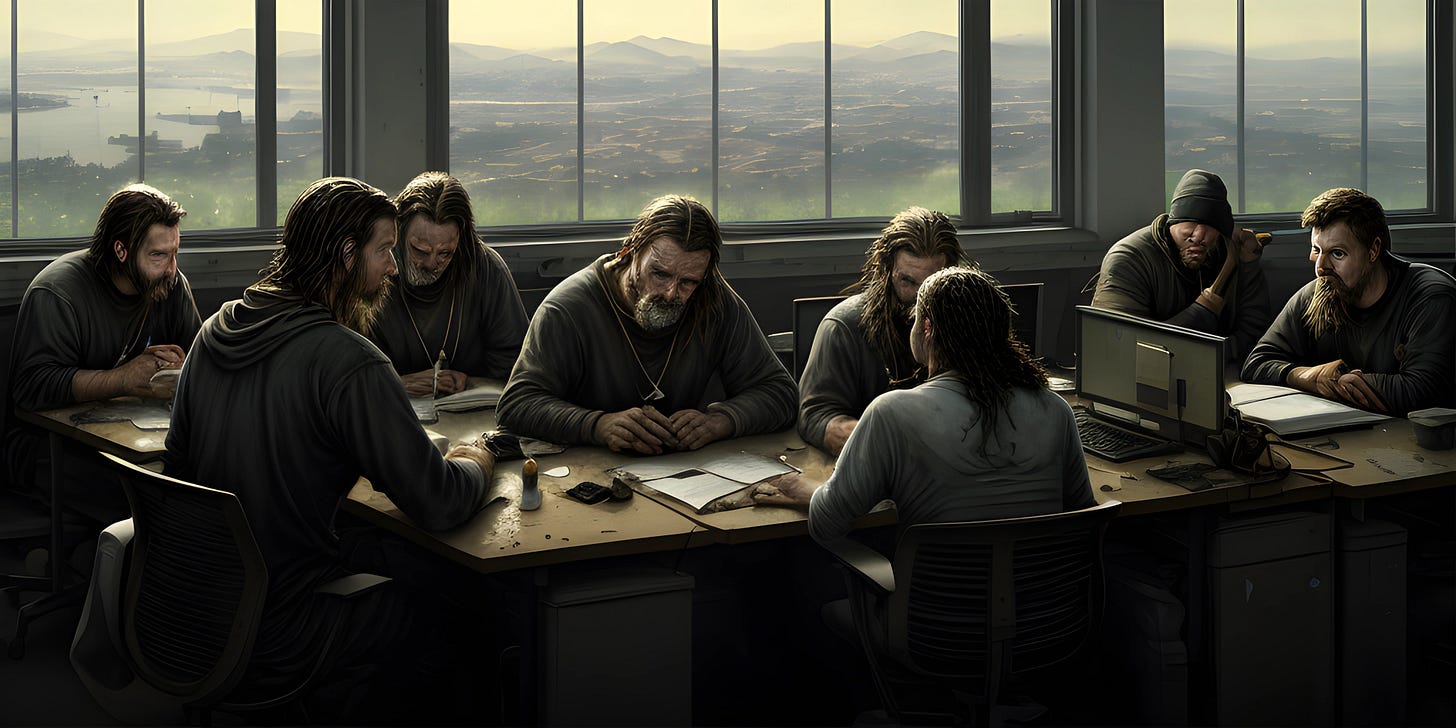





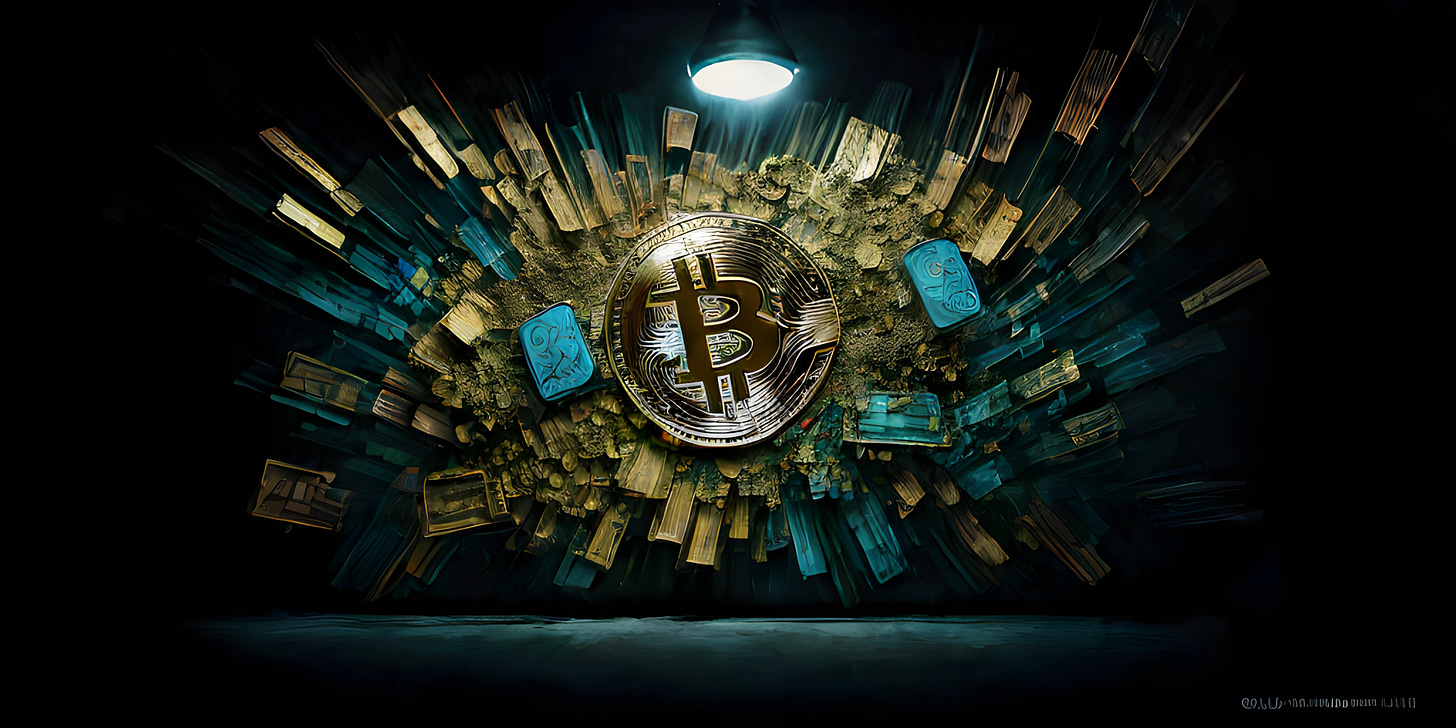
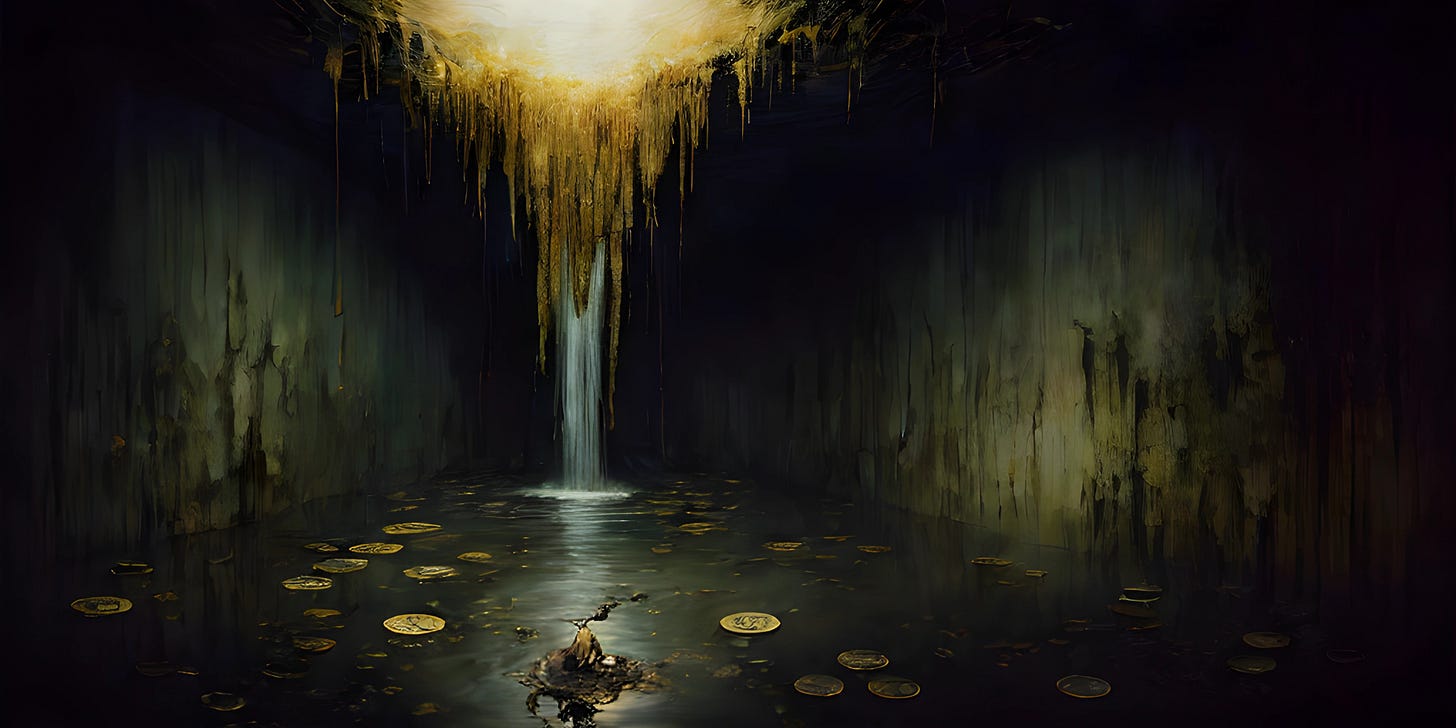
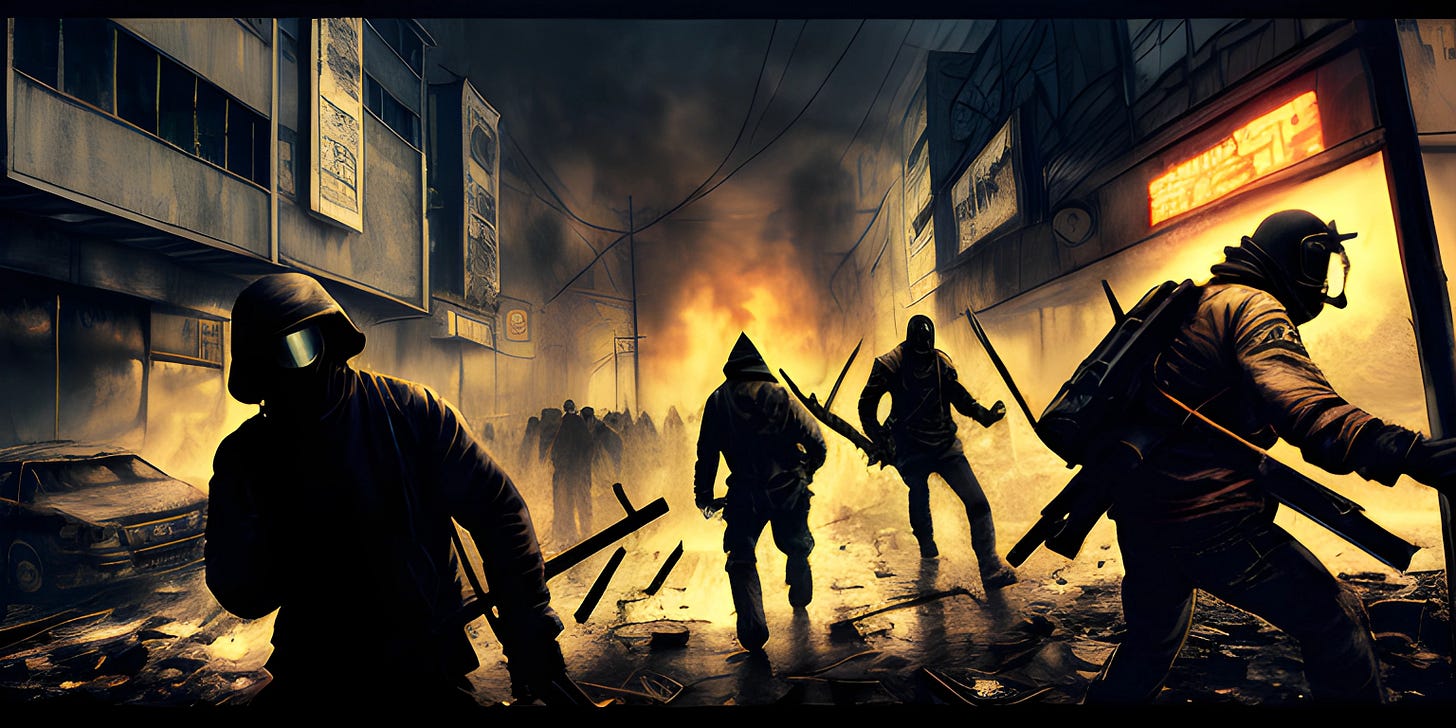
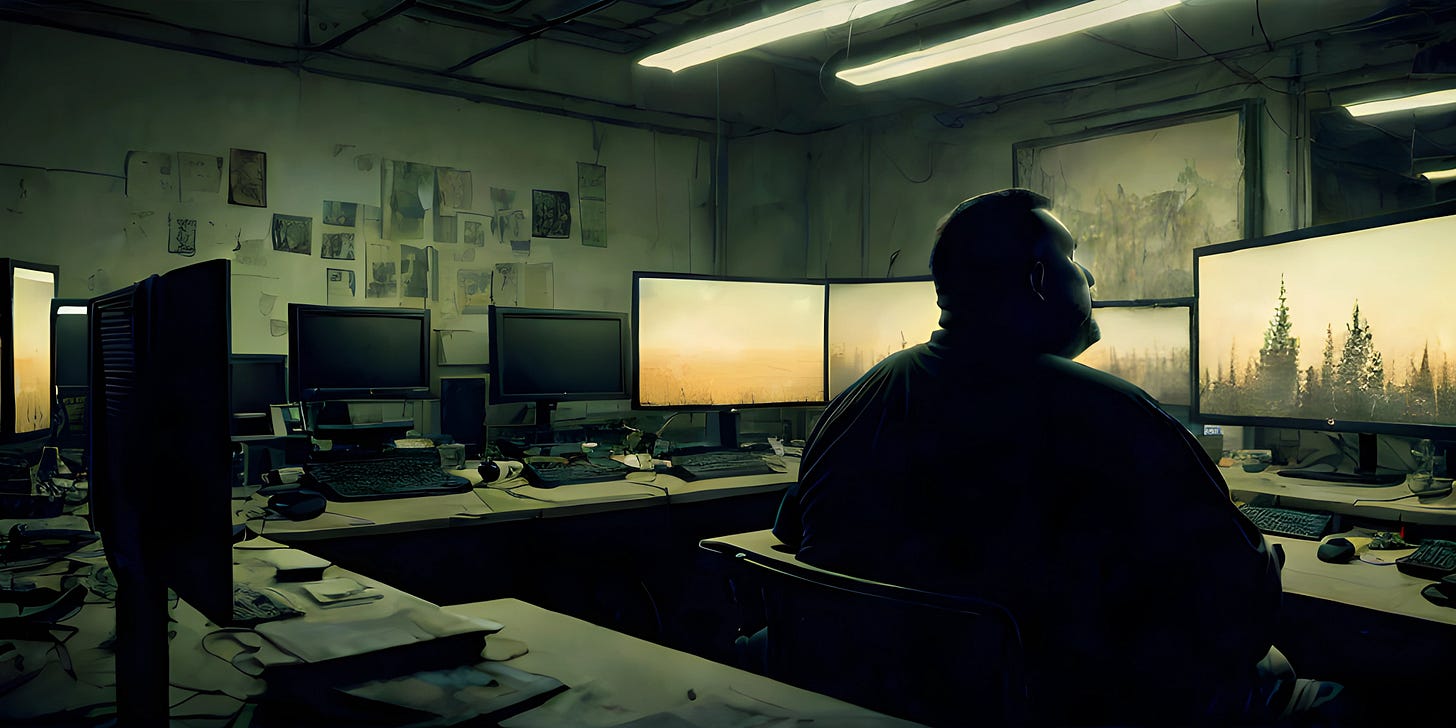

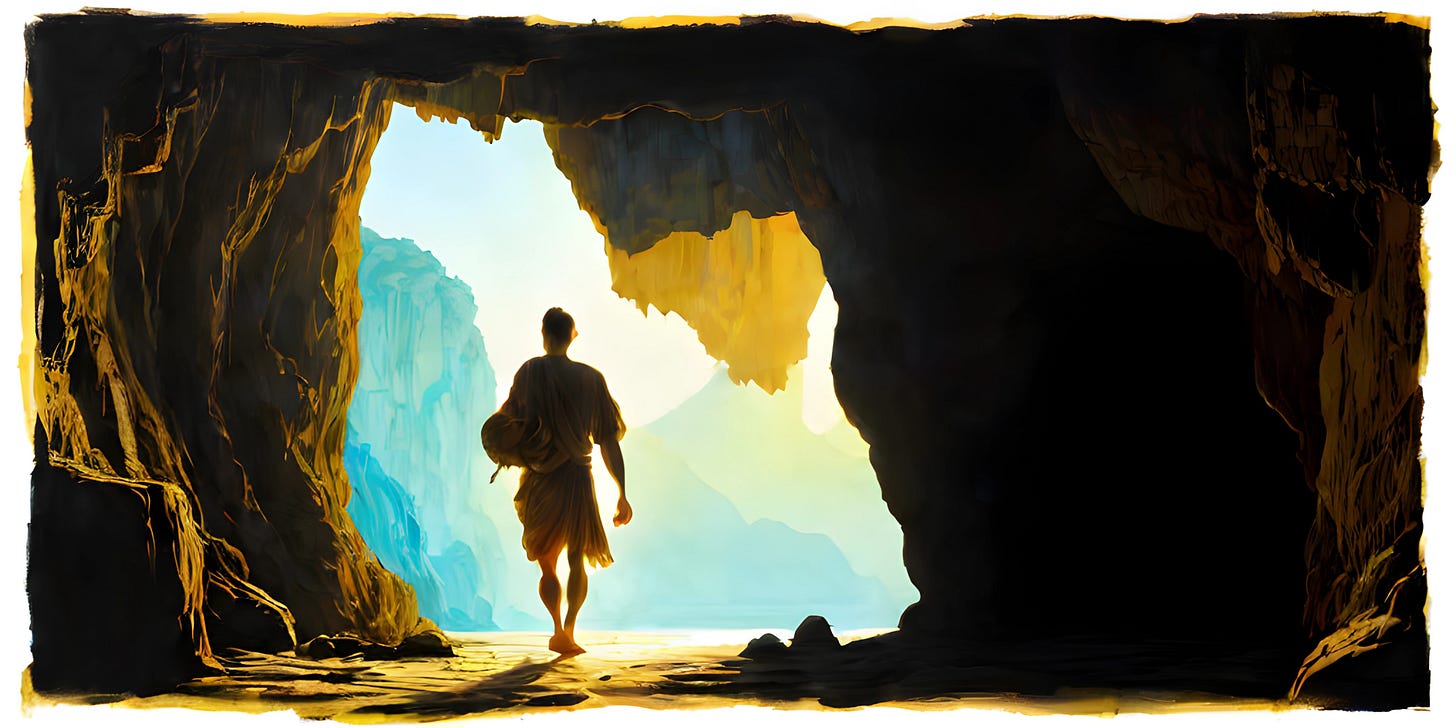
Great article!